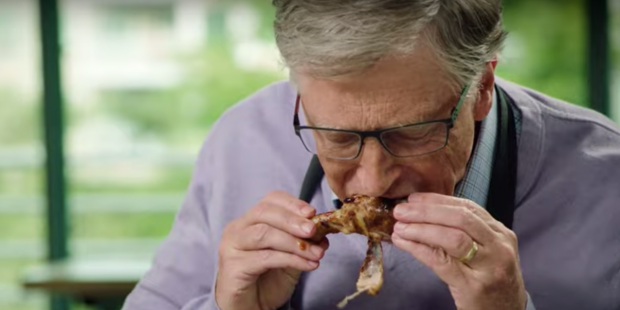
Breaking News
 Israeli Prime Minister, Netanyahu will meet with Trump on Wednesday and deliver instructions...
Israeli Prime Minister, Netanyahu will meet with Trump on Wednesday and deliver instructions...
 Elon Musk Offers To Cover Legal Bills Of Epstein Survivors Who Identify New Names
Elon Musk Offers To Cover Legal Bills Of Epstein Survivors Who Identify New Names
 Red Alert Emergency Broadcast! Tune In NOW As Alex Jones Analyzes The Insane Revelations...
Red Alert Emergency Broadcast! Tune In NOW As Alex Jones Analyzes The Insane Revelations...
 330 gallons of sulphuric acid was purchased for Epstein Island on the day the FBI opened...
330 gallons of sulphuric acid was purchased for Epstein Island on the day the FBI opened...
Top Tech News
 Drone-launching underwater drone hitches a ride on ship and sub hulls
Drone-launching underwater drone hitches a ride on ship and sub hulls
 Humanoid Robots Get "Brains" As Dual-Use Fears Mount
Humanoid Robots Get "Brains" As Dual-Use Fears Mount
 SpaceX Authorized to Increase High Speed Internet Download Speeds 5X Through 2026
SpaceX Authorized to Increase High Speed Internet Download Speeds 5X Through 2026
 Space AI is the Key to the Technological Singularity
Space AI is the Key to the Technological Singularity
 Velocitor X-1 eVTOL could be beating the traffic in just a year
Velocitor X-1 eVTOL could be beating the traffic in just a year
 Starlink smasher? China claims world's best high-powered microwave weapon
Starlink smasher? China claims world's best high-powered microwave weapon
 Wood scraps turn 'useless' desert sand into concrete
Wood scraps turn 'useless' desert sand into concrete
 Let's Do a Detailed Review of Zorin -- Is This Good for Ex-Windows Users?
Let's Do a Detailed Review of Zorin -- Is This Good for Ex-Windows Users?
 The World's First Sodium-Ion Battery EV Is A Winter Range Monster
The World's First Sodium-Ion Battery EV Is A Winter Range Monster
 China's CATL 5C Battery Breakthrough will Make Most Combustion Engine Vehicles OBSOLETE
China's CATL 5C Battery Breakthrough will Make Most Combustion Engine Vehicles OBSOLETE
Bill Gates' Scary Recipe for How to Feed the World

If Bill Gates has his way, the food in our future will little resemble what's on our plates today. Gates and his agribusiness industry partners are proposing to transform our food and how it is produced.
To the techno-food industrialists, hunger and climate change are problems to be solved with data and engineering. The core ingredients of their revolutionary plan: genetic engineering — and patenting — of everything from seeds and food animals, to microbes in the soil, to the processes we use to make food. Local food cultures and traditional diets could fade away as food production moves indoors to labs that cultivate fake meat and ultra-processed foods.
Gates says rich countries should shift entirely to synthetic beef. And he has the intellectual property rights to sell them. As a food that can help fix the climate, Gates touts the Impossible Burger, a plant-based patty made from genetically engineered soy and textured with engineered yeast. Its manufacturer, the Gates-funded Impossible Foods, has two dozen patents and more than 100 patents pending to artificially replicate cheese, beef and chicken and permeate these products with manufactured flavors, scents and textures.
Ginkgo Bioworks, a Gates-backed start-up that makes "custom organisms," just went public in a $17.5 billion deal. The company uses its "cell programming" technology to genetically engineer flavors and scents into commercial strains of engineered yeast and bacteria to create "natural" ingredients, including vitamins, amino acids, enzymes and flavors for ultra-processed foods.
According to its investor presentation, Ginkgo plans to create up to 20,000 engineered "cell programs" (it now has five) for food products and many other uses. Axios reports that the company plans to charge customers to use its "biological platform" like Amazon charges for its data center, and will take royalties like apps in the Apple Store. Ginkgo's customers, the investor pitch makes clear, are not consumers or farmers, but rather the world's largest chemical, food and pharmaceutical companies.



